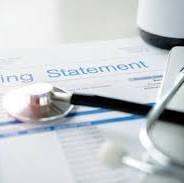If you’re navigating a California personal injury case, understanding how medical liens work is crucial. Medical liens can significantly impact your personal injury settlement, and knowing the ins and outs can help you negotiate effectively.
What is a Medical Lien?
A medical lien is a legal agreement between a medical provider and a patient (or their attorney) where the healthcare provider agrees to provide medical treatment without immediate payment, instead placing a lien on any potential settlement or judgment from a personal injury claim. In California, these liens are common in personal injury cases, allowing injured individuals to receive necessary medical care without upfront costs.
How Do Medical Liens Work?
When you receive medical treatment for injuries related to your personal injury case, your healthcare provider may require a lien agreement. This means they will wait to get paid until your personal injury settlement is finalized. If you win your case, the medical expenses are paid directly from your settlement money. If the case is unsuccessful, you typically do not owe the medical provider.
The Role of Medical Providers
Medical providers in California can place liens on the settlement amount to ensure they recover medical costs. This can include hospitals, doctors, and other healthcare professionals who have provided medical services related to your injuries. Under California law, these providers have the right to assert a lien for medical expenses incurred due to your injury.
Types of Medical Liens in California
- Hospital Liens: These are specific liens placed by hospitals for the care they provided.
- Statutory Liens: Governed by California Civil Code, these liens ensure that certain medical providers are compensated before the injured party receives their settlement.
- Medi-Cal Liens: If you received medical treatment covered by Medi-Cal, the state can assert a lien against your settlement to recover those costs.
How to Negotiate Medical Liens
Negotiating medical liens can significantly influence the final amount you receive from your personal injury settlement. Here are some tips to effectively negotiate:
- Review the Lien Agreement: Understand the terms and total medical costs included in the lien.
- Assess Medical Bills: Ensure the medical bills reflect necessary and reasonable treatment for your injuries.
- Negotiate with Healthcare Providers: Many medical providers are willing to negotiate their liens. If your settlement is lower than expected, they may reduce their claim to ensure you receive fair compensation.
The Importance of a Personal Injury Lawyer
A personal injury lawyer experienced in California law can be invaluable in negotiating medical liens. The role of a personal injury lawyer is to help ensure that medical expenses are fair and reasonable, potentially increasing your final settlement amount. Plus, with their expertise, they can navigate the complexities of medical liens, ensuring that all aspects of your personal injury case are handled professionally. It is normal to want some advice before agreeing to a medical lien, getting a medical lien, and/or using a medical lien. Finding a law firm with an experienced California personal injury attorney is a great place to start.
Conclusion
In summary, medical liens play a critical role in personal injury lawsuits in California. Understanding how they work can help you navigate your case more effectively. By negotiating your medical bills and working with a skilled personal injury attorney, you can maximize your settlement and ensure that your medical expenses are covered. If you’re facing a personal injury case, be sure to consider how medical liens might impact your recovery and work with a professional to secure the best outcome.





